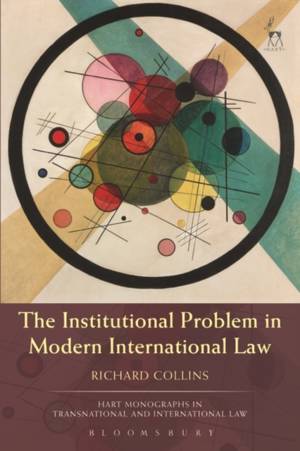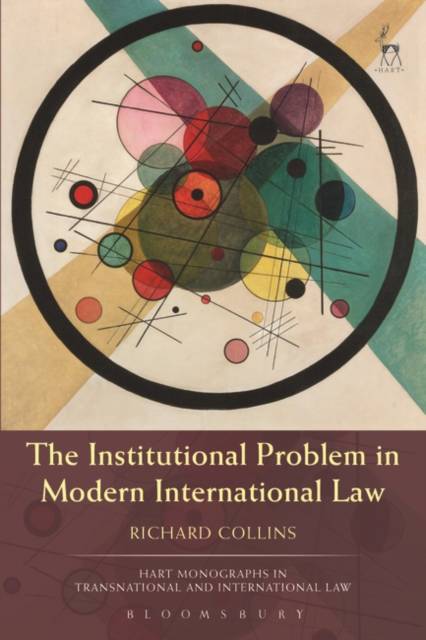
Je cadeautjes zeker op tijd in huis hebben voor de feestdagen? Kom langs in onze winkels en vind het perfecte geschenk!
- Afhalen na 1 uur in een winkel met voorraad
- Gratis thuislevering in België vanaf € 30
- Ruim aanbod met 7 miljoen producten
Je cadeautjes zeker op tijd in huis hebben voor de feestdagen? Kom langs in onze winkels en vind het perfecte geschenk!
- Afhalen na 1 uur in een winkel met voorraad
- Gratis thuislevering in België vanaf € 30
- Ruim aanbod met 7 miljoen producten
Zoeken
The Institutional Problem in Modern International Law
Richard Collins
€ 195,45
+ 390 punten
Uitvoering
Omschrijving
Modern international law is widely understood as an autonomous system of binding legal rules. Nevertheless, this claim to autonomy is far from uncontroversial. International lawyers have faced recurrent scepticism as to both the reality and efficacy of the object of their study and practice. For the most part, this scepticism has focussed on international law's peculiar institutional structure, with the absence of centralised organs of legislation, adjudication and enforcement, leaving international legal rules seemingly indeterminate in the conduct of international politics. Perception of this 'institutional problem' has therefore given rise to a certain disciplinary angst or self-defensiveness, fuelling a need to seek out functional analogues or substitutes for the kind of institutional roles deemed intrinsic to a functioning legal system. The author of this book believes that this strategy of accommodation is, however, deeply problematic. It fails to fully grasp the importance of international law's decentralised institutional form in securing some measure of accountability in international relations. It thus misleads through functional analogy and, in doing so, potentially exacerbates legitimacy deficits. There are enough conceptual weaknesses and blindspots in the legal-theoretical models against which international law is so frequently challenged to show that the perceived problem arises more in theory, than in practice.
Specificaties
Betrokkenen
- Auteur(s):
- Uitgeverij:
Inhoud
- Aantal bladzijden:
- 304
- Taal:
- Engels
- Reeks:
- Reeksnummer:
- nr. 11
Eigenschappen
- Productcode (EAN):
- 9781849465229
- Verschijningsdatum:
- 3/11/2016
- Uitvoering:
- Hardcover
- Formaat:
- Genaaid
- Afmetingen:
- 163 mm x 236 mm
- Gewicht:
- 657 g

Alleen bij Standaard Boekhandel
+ 390 punten op je klantenkaart van Standaard Boekhandel
Beoordelingen
We publiceren alleen reviews die voldoen aan de voorwaarden voor reviews. Bekijk onze voorwaarden voor reviews.









